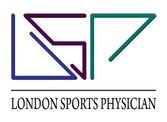What is SEM?
WHAT IS SEM?
Q1: What is Sport & Exercise Medicine (SEM)?
A: SEM is a dynamic medical specialty which utilises a multi-disciplinary approach to dealing with all issues that may prevent a patient from either starting or resuming physical activity.
There are 3 central aspects to the specialty- Musculoskeletal medicine, Exercise medicine & Team care.
The specialty is sometimes referred to as either ‘Sport & Exercise Medicine’ or ‘Sport, Exercise & Musculoskeletal Medicine’ or simply ”Sports Medicine‘- these terms are all synonymous!
Although the clinical practice of SEM has been going on for many years, it was only officially established as a UK medical specialty in 2005. For that reason, it is not as well known as some of the other specialties, for example ‘Rheumatology’ or ‘Orthopaedic Surgery’.
Inaugural specialty training in SEM formally began in August 2007, with the first batch of ‘run-through training’ consultants exiting in late 2011.
Q2: What is a 'Physician'?
A: The term ‘Physician’ refers to a medically qualified doctor, usually one who does not perform surgical operations.
Undergraduate medical school training typically takes 5-6 years. Upon completion and attainment of a medical degree, it can take a further 8-12 years of supervised postgraduate training for a newly qualified doctor to become an accredited medical specialist (consultant), particularly if they have taken time out to do further study, research or gain more clinical experience.
Although the terms can sound similar, it is not the same as a ‘Physiotherapist’ who is an allied health professional (AHP).
SEM physicians often work very closely with physiotherapists and other AHPs to deliver care to their patients. This is known as a multidisciplinary approach and confers multiple advantages for the patient with regard to better communication and consideration of the various facets needed to deliver superior care in complex cases.
Q3: What does SEM specialist training entail?
A: SEM physicians are all trained medical doctors who, after basic medical training, undergo specialist medical training in order to specialise in SEM. They are trained to treat all groups of patients- athletes and non-athletes alike. Treatment is NOT just the exclusive preserve of elite sportspeople!
Since 2007, there has been a formal UK training pathway to train as a specialty registrar (StR) in SEM- this is known as ‘run-through’ specialty training. It is a 4-year postgraduate integrated specialist training scheme, commencing at ST3 level, going up to ST6 level. Typically 3 years are spent working within the hospital setting, 1 year within the community setting.
During those 4 years, all SEM registrars must pass a specialist UK postgraduate membership exam- MFSEM(UK) – and undertake clinical placements in various specialties to gain the skills and competencies required to become an SEM consultant.
Some registrars elect to undertake further research and study, leading to MSc/ MD/ PhD higher degrees.
Clinical placements may include Emergency Medicine, Trauma & Orthopaedics, Rheumatology, Rehabilitation Medicine, General Practice, Public Health Medicine, Musculoskeletal Radiology, Pain Medicine, Musculoskeletal Medicine, Exercise Testing, Team Doctoring, Spinal and Sports Injury Clinics.
Registrars must complete their specialist training and exit the program having obtained all the listed competencies, before they can become formally accredited by the General Medical Council (GMC) as specialists and apply to be appointed as SEM consultants.
Having achieved SEM specialist status, they are then eligible to become Fellows of the Faculty of Sport & Exercise Medicine(UK) – FFSEM(UK).


